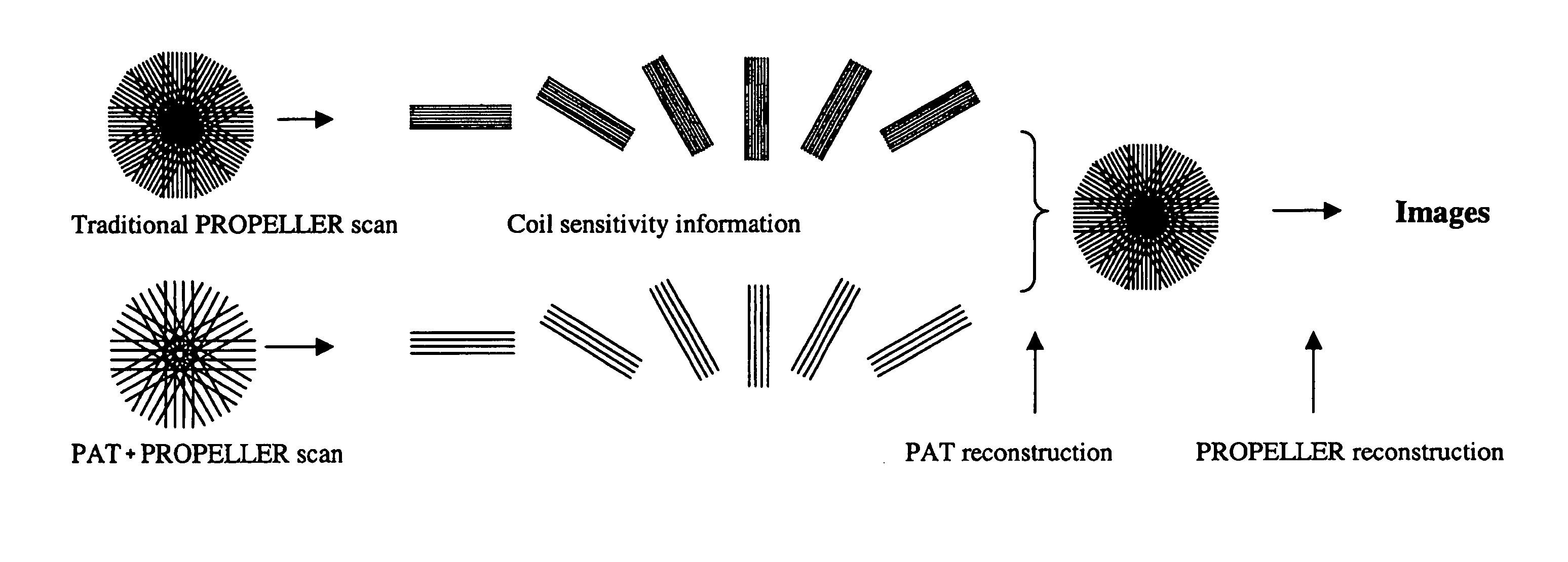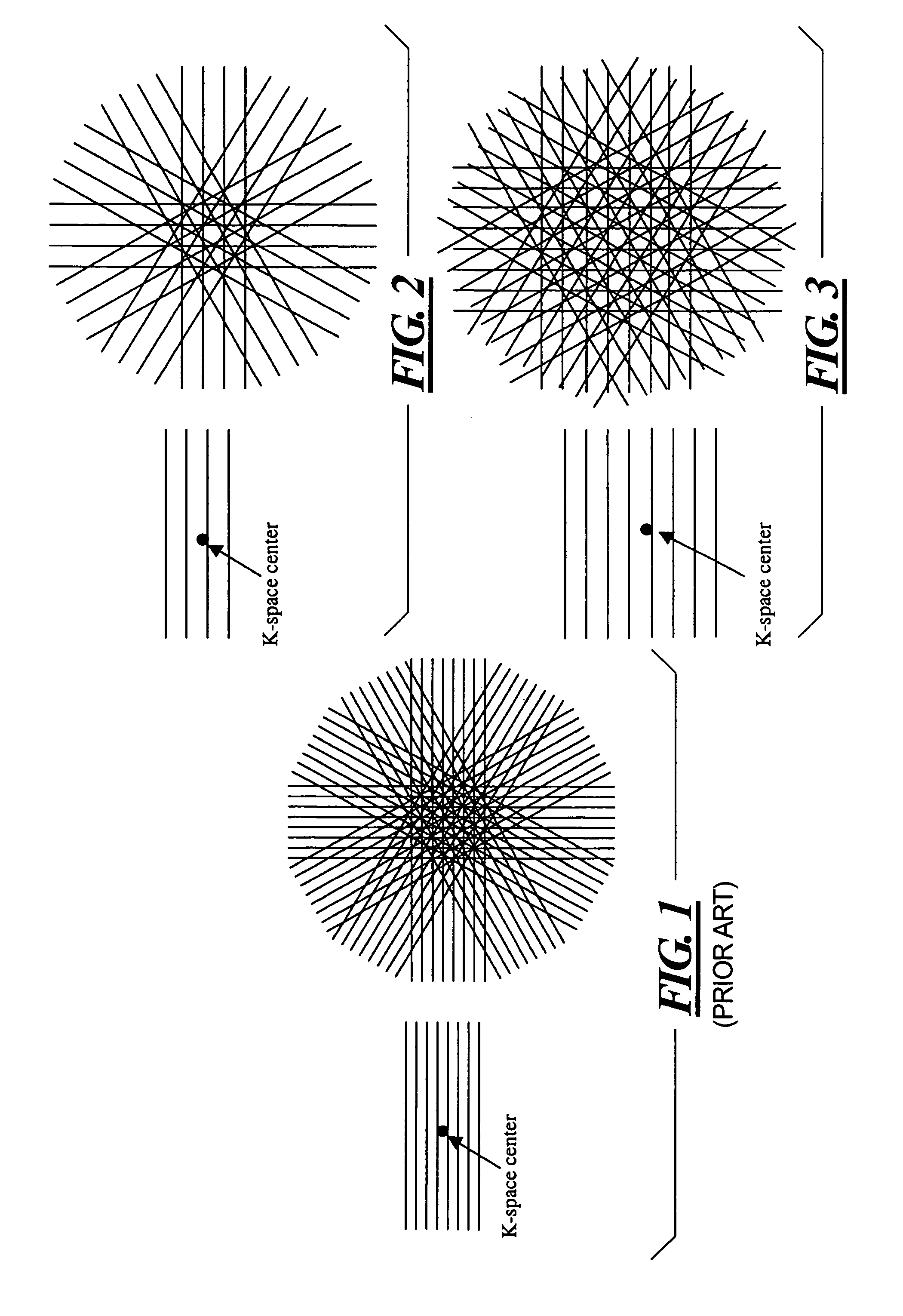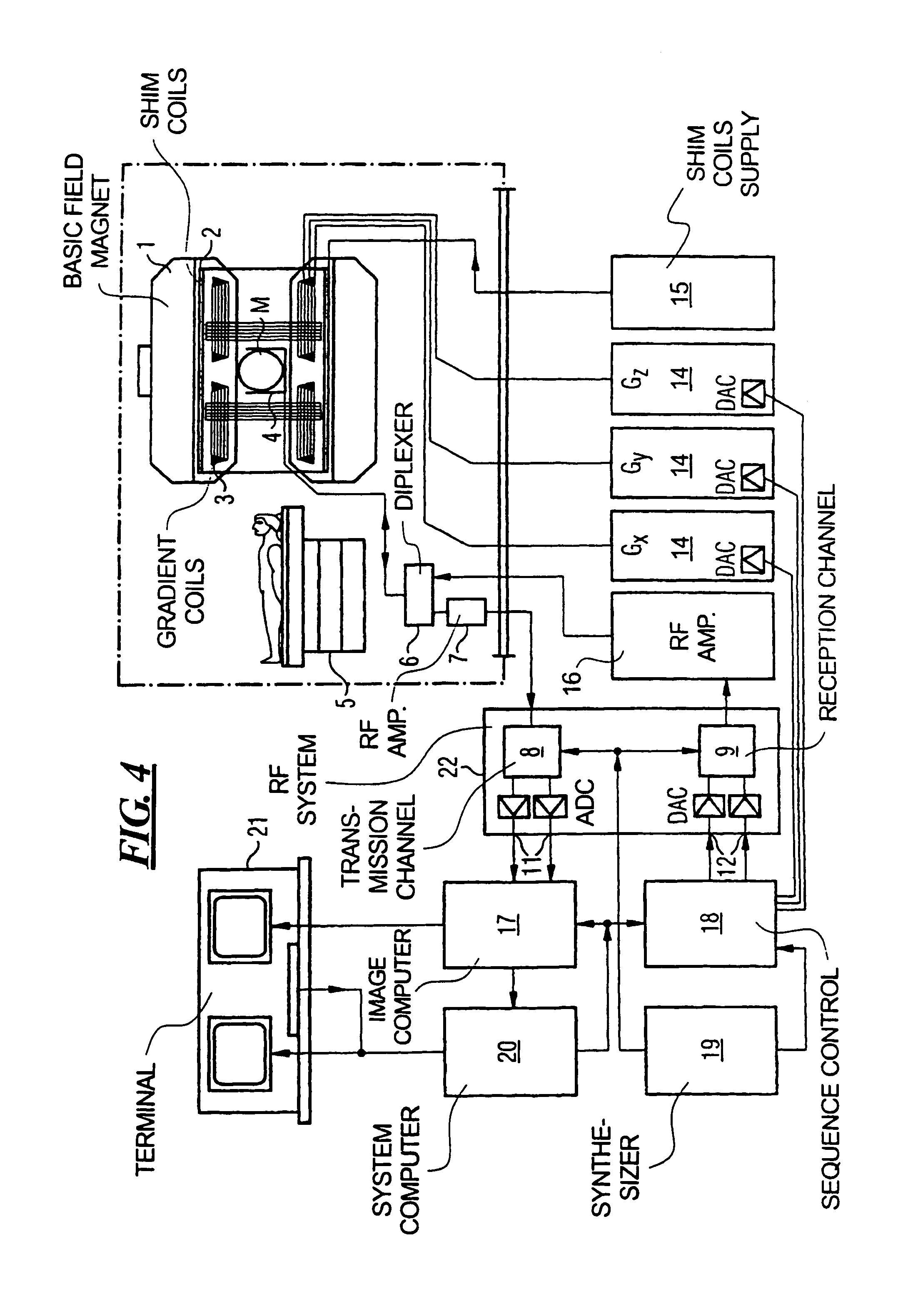MRI method and apparatus for faster data acquisition or better motion artifact reduction
a technology of motion artifact reduction and data acquisition, applied in the field of magnetic resonance imaging methods and apparatuses, can solve the problems of patient motion, relatively long data acquisition time, and require an additional /2 imaging time, and achieve the effect of reducing the disadvantage of longer data acquisition tim
- Summary
- Abstract
- Description
- Claims
- Application Information
AI Technical Summary
Benefits of technology
Problems solved by technology
Method used
Image
Examples
Embodiment Construction
[0026]FIG. 1 schematically illustrates the concept underlying a conventional PROPELLER scan. Data are acquired in k-space in N strips, each consisting of L parallel lines, corresponding to the L lowest frequency phase-encoding lines in any Cartesian-based data acquisition technique. Each strip is rotated in k-space by an angle a=π / n, so that the total dataset spans a circle in k-space. If a matrix having diameter M is desired, then L and N are chosen so that L·N−M·π / 2. The central circle in k-space, having a diameter L, is acquired for each of the N strips, which are respectively used to form N low-resolution images. These low-resolution images are compared to each other to remove in-plane displacement and phase errors, which are slowly varying in the spatial domain. These factors are corrected for each strip. A suitable technique such as cross-correlation is employed to determine which strips were acquired with significant through-plane displacement. As the data are combined in k-s...
PUM
 Login to View More
Login to View More Abstract
Description
Claims
Application Information
 Login to View More
Login to View More - R&D
- Intellectual Property
- Life Sciences
- Materials
- Tech Scout
- Unparalleled Data Quality
- Higher Quality Content
- 60% Fewer Hallucinations
Browse by: Latest US Patents, China's latest patents, Technical Efficacy Thesaurus, Application Domain, Technology Topic, Popular Technical Reports.
© 2025 PatSnap. All rights reserved.Legal|Privacy policy|Modern Slavery Act Transparency Statement|Sitemap|About US| Contact US: help@patsnap.com



